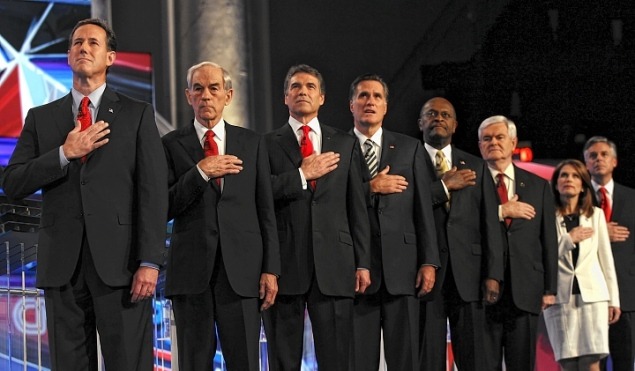Ahhhh! It’s election season! The Republican selection process is underway, so let’s take a look at where the contenders stand on some important human rights issues.
- The Republican candidates have made a big issue of the U.S.’s relationship with China, and how the Chinese government treats it’s own people. According to the website Republican-Candidates.org, Newt Gingrich, Ron Paul and Rick Santorum have all been sharply critical of China. Santorum called on the U.S. to battle China’s “godless socialism,” while Paul says trade policy should be tied to China improving its record on human rights. Mitt Romney took a slightly different tack. When asked whether China was a human rights “disaster,” Romney responded that he believes in building bridges and not walls.
- Child labor laws? Until recently they were fairly non-controversial. But former Speaker of the House Newt Gingrich called them “truly stupid,” and said impoverished kids should be allowed to work as school janitors up to 20 hours per week in order to learn a decent work ethic. The kids, he said, could replace unionized janitors in order to help them understand the value of a buck - since their parents aren’t working or setting a good example.
- Rick Santorum and Rick Perry both publicly denounced an Obama administration policy to assist organizations around the world fighting the persecution of gay people. Perry called it "promoting rights for gays" and, in a press release, said the Obama administration is making “war on traditional American values” and on “people of faith” by promoting a lifestyle they find “deeply objectionable.” Santorum told reporters, “I would suggest that we give out humanitarian aid based on humanitarian need, not based on whether people are promoting their particular agenda.”
- Santorum, rising in the polls prior to the Iowa caucus, took several shots at President Obama for his policies on Iran. Santorum said Obama has failed to support the pro-democracy movement in Iran and cut funding for pro-Democracy programs that President George W. Bush supported. In a foreign policy debate in November, Santorum and Romney expressed that they would support the "rebels" and "insurgents" in Iran who wish to overthrow the government. They were later criticized for their choice of wording, accused of implying that the pro-democracy "Green Movement" in Iran was made up of violent agents of the U.S.
- On the controversial subject of abortion, all of the GOP primary candidates have taken an anti-abortion stance and support a constitutional ban on the practice. Ron Paul approaches it slightly differently, however, and says the federal government should have no authority to either ban or legalize abortion. Romney is accused of flip-flopping on the issue, previously supporting moderate abortion regulations when he was governor of Massachusetts, but now saying that Roe v. Wade ought to be reversed in order for states to make their own decisions. Gingrich, Santorum, Perry and recently Paul (with an addendum) have all signed the “Personhood Pledge,” a pledge that supports a constitutional end to abortion and declares a fertilized egg a person.
- Perhaps where the candidates differ more significantly is on immigration. Gingrich favors a popular “red card solution” that would allow well-behaved, well-established immigrants to remain in the U.S. legally but not become citizens. Romney says Gingrich’s stance would make the U.S. a “magnet” for more illegal immigrants. As governor of Utah, Jon Huntsman signed legislation giving driving privileges to illegal immigrants and threatened a veto on a bill that would end in-state tuition for children of illegal immigrants. Ron Paul thinks giving illegal immigrants any benefits of U.S. citizenship would penalize Americans.
So that gives you a little flavor of how Republican candidates stand on various human rights issues. If you are voting in a Republican primary, I hope this information helps inform your decision.
